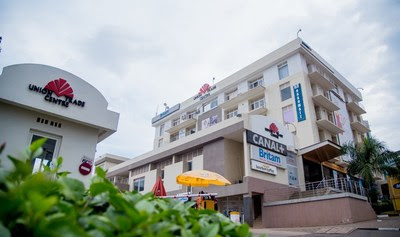Companies that accept U.S. funding under a plan to build up America’s computer chip-making capacity will be barred from establishing advanced fabrication facilities in China for 10 years, the administration of President Joe Biden announced this week.
The Commerce Department rolled out its plan to distribute $50 billion provided by the CHIPS Act, which Biden signed into law last month. In an appearance at the White House on Tuesday, Commerce Secretary Gina Raimondo said the rules include specific language on transferring technology to China.
“Companies who receive CHIP funds can’t build leading-edge or advanced technology facilities in China for a period of 10 years,” she said. “Companies who receive the money can only expand their mature node factories in China to serve the Chinese market.”
Mature node factories refer to semiconductor fabrication facilities that only produce older technology that is already widely available.
Raimondo reminded her audience of the semiconductor supply shortage during the first years of the COVID-19 pandemic, saying, “We saw the impact of the chip shortage on American families when car prices drove a third of inflation because of lack of chips, factory workers were furloughed, household appliances were often unavailable, all because of a lack of semiconductors.”
“With this funding, we’re going to make sure that the United States is never again in a position where our national security interests are compromised or key industries are immobilized due to our inability to produce essential semiconductors here at home,” she said.
Low US capacity
The CHIPS Act is a response not just to the computer chip shortage that snarled global supply chains during the pandemic but also to the perceived national security threat that a lack of domestic semiconductor manufacturing presents.
According to the Commerce Department, the U.S. consumes 25% of the world’s most advanced computer chips but does not produce any of them. As for less advanced chips, the U.S. consumes 30% but manufactures only 13%.
Because advanced chips are used not only in consumer goods but in weapons systems and other technology important to national security, the federal government worries that global adversaries could choke off supply in the event of a conflict.
For example, a large percentage of the chips the U.S. imports come from Taiwan, which has come under increasingly serious threat from China, whose government claims the island nation as part of its country.
‘Unusual’ policy
James A. Lewis, senior vice president and director of the Strategic Technologies Program at the Center for Strategic and International Studies (CSIS), told VOA that the 10-year time limit is “an unusual” policy for the U.S., and it probably represents an effort to find middle ground between technology companies and China hawks in the federal government.
“I can’t think of any other case where we’ve put a time limit like that. … It’s not how we usually do things internationally,” he said.
The Commerce Department, Lewis said, found itself between technology companies reluctant to be completely cut off from one of the world’s largest markets on one side, and Congress and the White House on the other. Lawmakers and President Biden are both eager to prevent China from producing cutting-edge semiconductors.
Technology restrictions not new
Although a decade-long ban on the manufacture of advanced semiconductor technology in China may be stricter than expected, U.S. companies are used to facing restrictions on the export of critical technology.
“U.S. companies will follow U.S. law. They will continue to sell chips to Chinese buyers in accordance with existing law,” Doug Barry, a vice president with the U.S.-China Business Council, told VOA in an email exchange. “They have long been required to apply for export licenses to sell certain kinds of chips and have halted sales to specific China entities when U.S. law required them to do so.”
Barry said that his organization’s members “support the policies of a strong indigenous semiconductor industry and robust national security.”
He added: “The key for preserving U.S. competitiveness in important technologies is to narrow the scope of export and investment controls, and to consult regularly with the business community to avoid unintended policy consequences.”
Chinese embassy responds
In a reply to a query from VOA, the Chinese embassy in Washington emailed a response to the measure from spokesperson Liu Pengyu.
“The Chinese side opposes the relevant Act’s intervention in and restriction on economic, trade and investment cooperation of the global business community,” Liu said. “The Act which includes terms limiting relevant companies’ normal investment and trade in China and normal China-U.S/ sci-tech cooperation. It would distort the global semiconductor supply chains and disrupt international trade. China is firmly against that.”
In conclusion, Liu said, “The U.S. politicizes, instrumentalizes and weaponizes tech and trade issues, and engages in tech blockade and decoupling in an attempt to monopolize the world’s advanced technologies, perpetuate its hegemony in the sci-tech sector, and damage the closely-knit global industrial and supply chains. Such moves would hurt others without benefiting oneself.”
A bifurcated future
Lewis, of CSIS, said the 10-year ban strengthens the possibility that China will simply go its own way, investing in the capacity to produce its own technology, perhaps to standards that would not be compatible with Western technology.
Were it to do so, it might find willing customers in countries such as Russia and Iran, which find themselves on the receiving end of U.S.-backed sanctions. China might also begin to compete with the U.S. in other markets.
“If nothing changes, by 2030 we’ll see a bifurcated system,” Lewis said. “It’s a new kind of competition. There’ll be Chinese stuff made on Chinese standards that they’ll want to sell to the global market. And there will be Western stuff made on Western standards that they’ll want to sell to the global market.”
Source: Voice of America



